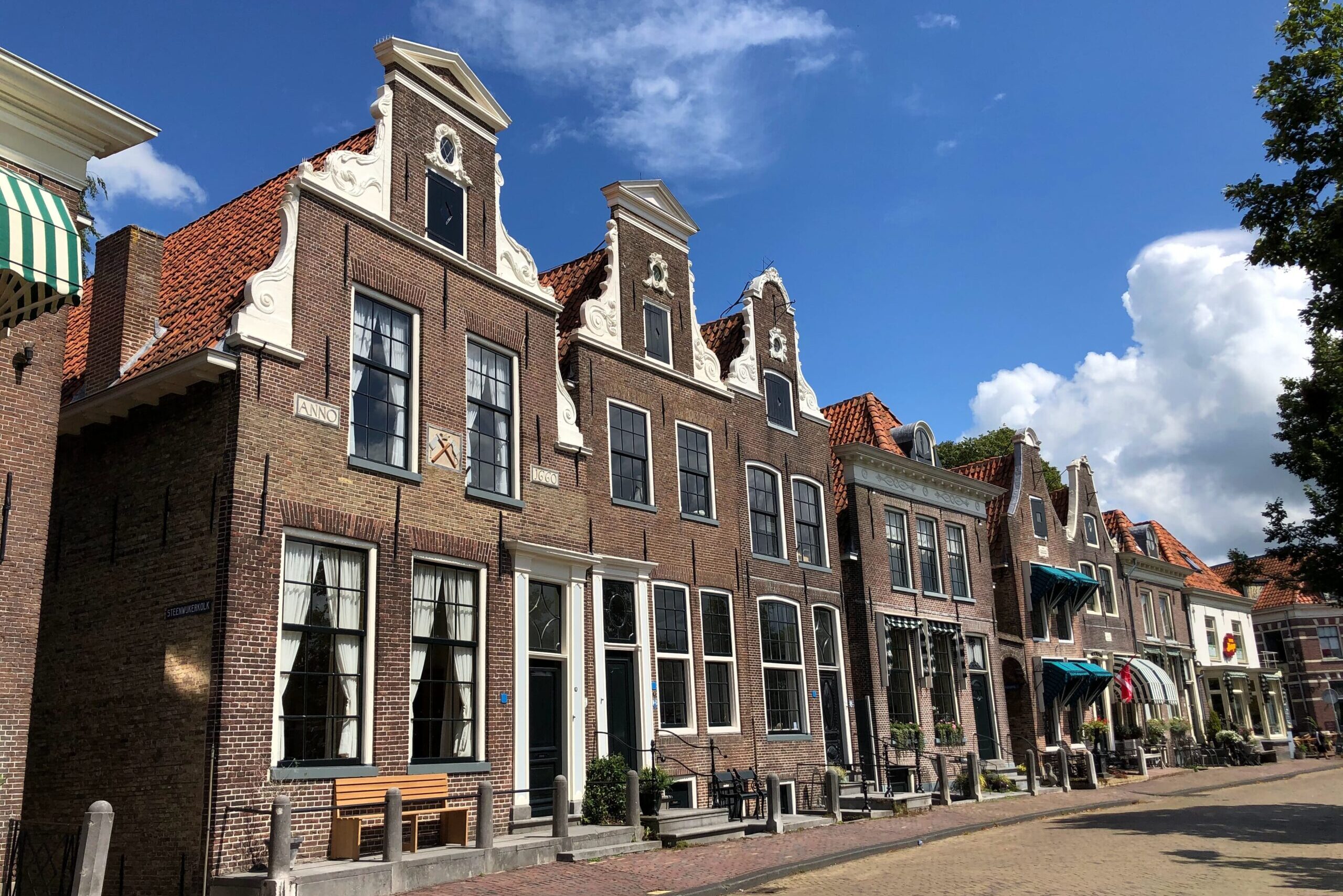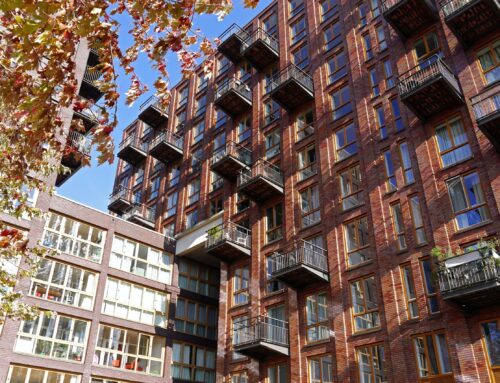Here’s 10 answers to the most common questions about renting in the Netherlands.
We answer the following questions:
- What’s the difference between inclusive and exclusive rent?
- Why do I need to pay a deposit when renting in the Netherlands?
- Can I get a Housing Allowance?
- Is shared housing common in the Netherlands?
- Do I have to register my address when renting in the Netherlands?
- What happens with my mail?
- Who’s doing the renovation?
- To whom belongs the washing machine?
- What’s the best time to find a place?
- Am I allowed to have pets?
1What’s the difference between inclusive and exclusive rent?
The stated rent in housing ads in the Netherlands can sometimes be misleading, depending on wether the listed price is inclusive or exclusive. Rent in the Netherlands consists of the basic rent (kale huur) and the service costs (servicekosten) for electricity, gas, water and internet. They usually come to around 25% of the basic rent. Renting inclusive in the Netherlands means that all service costs are included in the stated monthly price. If you are renting exclusive, these costs will come on top of the stated price.
Sometimes it is your responsibility to conclude contracts with service providers for electricity, gas, water and internet. This causes more work, but it can also save you money as you can compare different service providers and choose the cheapest offer. The Netherlands has tons of service providers for electricity, gas and water. You can use comparison websites like Independer to compare different deals.
Some of the popular service providers for electricity and gas in the Netherlands are:
- Eneco – electricity, gas and heat
- Vattenfall – electricity, gas and heat
- Essent – electricity, gas
- Oxxio – electricity, natural gas, internet and television
- Greenchoice – green energy supplier
- Energiedirect – green energy and gas supplier
Popular service providers for internet and television in the Netherlands are:
Tip: If you are renting in the Netherlands inclusive, your landlord must declare the basic rent and the service costs in the rental contract and provide you with an overview of the service costs once a year. If the annual summary shows that the landlord has had to advance more for the service than was paid by the tenants, they may increase the service costs. If it’s less, you might get some money back.
2 Why do I need to pay a Deposit when renting in the Netherlands?
If you rent a home in the Netherlands, you must pay a deposit when you move in. Its value is usually around one or two months’ rent; you either have to pay it upfront or transfer it with your first rent. The deposit serves as a guarantee for the landlord. They use it for costs that emerge if you break something in the apartment or house, and it’s not fixed when you move out. It is also used if, when you move out, you need to pay sufficient rent or move out without notice. Usually, you’ll receive the deposit back as soon as you move out of a place.
3 Can I get a Housing Allowance?
If your rent is too high compared to your income, you might be entitled to a rent allowance (huurtoeslag) from the government. Multiple criteria must be met to be granted this benefit when renting in the Netherlands. Conditions are, i.a., your income level, the rent amount and whether the apartment you are renting has its own entrance (door). Most housing ads state if the apartment is suitable for rent benefit (Huurtoeslag mogelijk). Including this criterion in your search is worthwhile if you meet the requirements.
5 Do I have to register my address when renting in the Netherlands?
Yes, the government wants to know who lives where; therefore, you have to register your address or any change of address officially. The BRP database contains the personal data of all residents of the Netherlands. If you move to a new place, you must report your new address to the BRP and deregister your old address. You must do so within four weeks before and no later than five days after your address changes. Registration in the BRP is made through the Municipality.
If you are moving within the same municipality, you can register address changes mostly digitally via the website of the respective city. If you move to another municipality in the Netherlands, you must register there. The municipality that you leave automatically takes care of your deregistration.
Sometimes housing ads contain the note: “no registration possible”, meaning that you can’t register at this address, which is illegal. The reason could be that the landlord doesn’t feel like receiving all the mail from previous tenants (including debt collectors at the door). However, it’s more likely that the room is located in a house where the landlord is not officially allowed to (sub)rent that room or that the landlord does not specify all rent for the taxes.
Especially in student cities, this happens quite frequently, though. Next to the fact that it is illegal not to register your address at the BRP, it also brings another disadvantage: To receive allowances from the government (e.g. housing or care allowance), you need to be legally registered with your address.
6 What happens whith my mail?
If you change address, informing all companies and people you may receive mail from about your new address is handy. As this can be quite some work, consider using the Post NL Verhuisservice to take care of this. The Dutch post automatically notifies essential companies of your change of address, provides you with a list of which companies have already received your new address and have your mail automatically forwarded to your new address. For this service, you pay around 2 Euro per week, depending on how long you’d like your mail forwarded.
7 Who pays for maintenance/renovation?
In the Netherlands, it is normal to repaint the room, apartment or house yourself when you move in. If the previous tenant happened to be a big fan of red walls and you are (surprisingly) not, it is your responsibility to change this. On the bright side: if you move out, you’re usually also not obliged to bring the apartment back to its original state. Except, of course, if something is broken (see deposit).
Another peculiar thing about renting in the Netherlands is that the Dutchies sometimes move their floor with them (Read more about it in Niclas’ story). Make sure you make arrangements with the previous tenant before moving day. Some tenants prefer to leave the floor and sell it to you as it’s easier for all parties involved.
If something breaks or is damaged during the rental period due to wear and tear or age, the landlord will normally pay for it. Of course, if you cause extra damage or are not careful with the material, you may have to pay for the damage or part of it.
8 To whom belongs the washing machine?
Compared to other countries (like Germany and Switzerland, for example), usually, every household has its own washing machine. It is mostly located in the kitchen, bathroom or a separate washing closet. Unless you rent a furnished place, the washing machine is usually not provided, and you have to buy a washing machine yourself. Some providers rent out washing machines, like Coolblue, for example. You can also check the popular website Marktplaats to find second-hand washing machines.
If you are moving into a shared house, this is different. Unless the washing machine belonged to the person moving out, there probably is one available when you’re moving in.
9 What’s the best time to find a place?
We can’t exactly tell you the best time for renting a house in the Netherlands, but we can tell you what time of the year renting in the Netherlands is more challenging. In student cities like Utrecht, Leiden or Groningen, the summer is the busiest period for the housing market. That’s when many new (Dutch) students are looking for a place to live before University starts in September. If you are
The housing market usually calms down after September, but especially in December and January. The most popular moving months are April, May and June. This is also when most accommodation in the Netherlands is available.
10 Am I allowed to have pets?
Not all landlords allow pets. Most housing ads state whether pets are allowed in the accommodation or not. Some landlords favour tenants without pets as there is a lower risk of noise disturbance and damage.
However, that’s different for every landlord; in our experience, landlords can make exceptions. Feel free to ask if you have pets and are unsure whether they are allowed in the accommodation. Wait for a tactical moment to ask further into the negotiations.


